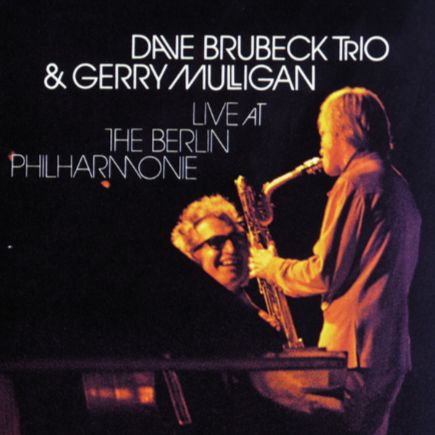Basin Street Blues: mémoire vivante de La Nouvelle-Orléans
Naissance d’un emblème néo-orléanais
Composé en 1926 par Spencer Williams, Basin Street Blues s’impose rapidement comme un standard majeur du jazz dixieland. C’est toutefois l’enregistrement décisif du 4 décembre 1928 par Louis Armstrong et ses Hot Five qui lui confère un statut fondateur. Cette version cristallise une esthétique en pleine affirmation, où l’expressivité individuelle et la cohésion collective redéfinissent les contours du jazz moderne naissant.
Un lieu, une histoire, un imaginaire
Le titre renvoie directement à Basin Street, artère centrale de Storyville, quartier emblématique du Vieux Carré de La Nouvelle-Orléans. Haut lieu de la vie nocturne et creuset culturel, Storyville voit émerger les premières grandes figures du jazz, dont Armstrong et Jelly Roll Morton. Dans ce contexte, Basin Street Blues dépasse la simple évocation géographique. La chanson devient un vecteur de mémoire, condensant l’atmosphère, les tensions et la vitalité d’un monde aujourd’hui disparu.
Écriture musicale et postérité
Sur le plan musical, Basin Street Blues conjugue un thème mélancolique à une grande liberté d’interprétation. Souvent porté par la trompette ou le cornet, il offre un terrain privilégié à l’improvisation et à la variation expressive. Sa postérité est exceptionnelle. Au-delà des nombreuses versions laissées par Armstrong, le morceau est repris des centaines de fois et intégré à des films tels que The Glenn Miller Story, Casino ou The Curious Case of Benjamin Button, confirmant son statut d’icône durable du jazz et de la culture américaine.
Le swing réinventé par Brubeck et Mulligan
Le 7 novembre 1970, la Philharmonie de Berlin accueille un moment rare: une relecture magistrale de Basin Street Blues par le Dave Brubeck Trio, rejoint pour l’occasion par le saxophoniste Gerry Mulligan. Ce concert, enregistré et publié sous le titre Live at the Berlin Philharmonie, témoigne d’un jazz en pleine maturité, à la fois ancré dans l’héritage et ouvert à la réinvention.
Brubeck, Mulligan, Jack Six (contrebasse) et Alan Dawson (batterie) s’emparent de ce classique avec respect, mais sans nostalgie. Leur version déploie une dynamique nouvelle, faite de déconstructions subtiles, de contrepoints inattendus et d’un dialogue serré entre les voix instrumentales.
La complicité entre Brubeck et Mulligan est palpable. Le piano, solide et inventif, soutient les envolées du saxophone baryton, dont le timbre ample et chaleureux donne au thème une résonance singulière. Mulligan joue avec les silences, les élans lyriques et les ruptures de ton, tandis que Brubeck répond avec des progressions harmoniques nuancées et des ruptures rythmiques maîtrisées.
La section rythmique, précise et souple, assure l’ancrage tout en laissant l’espace nécessaire à l’improvisation collective. Le résultat: un Basin Street Blues réimaginé dans l’esprit du cool jazz, mais traversé d’éclats de swing et d’accents modernistes.
Basin Street Blues: memoria viva de Nueva Orleans
Nacimiento de un emblema de Nueva Orleans
Compuesto en 1926 por Spencer Williams, Basin Street Blues se impuso rápidamente como un estándar fundamental del jazz dixieland. Sin embargo, fue la grabación decisiva del 4 de diciembre de 1928 por Louis Armstrong y sus Hot Five la que le otorgó un estatus fundacional. Esta versión cristaliza una estética en plena afirmación, donde la expresividad individual y la cohesión colectiva redefinen los contornos de un jazz moderno en formación.
Un lugar, una historia, un imaginario
El título remite directamente a Basin Street, arteria central de Storyville, barrio emblemático del Vieux Carré de Nueva Orleans. Centro neurálgico de la vida nocturna y crisol cultural, Storyville vio surgir a las primeras grandes figuras del jazz, entre ellas Armstrong y Jelly Roll Morton. En este contexto, Basin Street Blues supera la simple referencia geográfica para convertirse en un vehículo de memoria, condensando la atmósfera, las tensiones y la vitalidad de un mundo hoy desaparecido.
Escritura musical y legado
Musicalmente, Basin Street Blues combina una melancolía contenida con una notable libertad interpretativa. Habitualmente llevado por la trompeta o el cornetín, ofrece un terreno privilegiado para la improvisación y la variación expresiva. Su legado es excepcional. Reinterpretado cientos de veces, el tema aparece también en películas como The Glenn Miller Story, Casino o The Curious Case of Benjamin Button, confirmando su condición de icono perdurable del jazz y de la cultura estadounidense.
El swing reinventado por Brubeck y Mulligan
El 7 de noviembre de 1970, la Philharmonie de Berlín fue escenario de un momento excepcional: una magistral reinterpretación de Basin Street Blues a cargo del Dave Brubeck Trio, con la participación especial del saxofonista Gerry Mulligan. Este concierto, grabado y publicado bajo el título Live at the Berlin Philharmonie, refleja un jazz en plena madurez, profundamente enraizado en la tradición pero abierto a la renovación.
Brubeck, Mulligan, Jack Six (contrabajo) y Alan Dawson (batería) abordan este clásico con respeto, pero sin nostalgia. Su versión despliega una nueva energía, hecha de sutiles deconstrucciones, contrapuntos inesperados y un diálogo estrecho entre las voces instrumentales.
La complicidad entre Brubeck y Mulligan es evidente. El piano, firme e inventivo, sostiene las líneas del saxofón barítono, cuyo timbre amplio y cálido confiere al tema una resonancia única. Mulligan juega con los silencios, los impulsos líricos y los cambios de tono, mientras Brubeck responde con progresiones armónicas matizadas y precisos desplazamientos rítmicos.
La sección rítmica, precisa y flexible, proporciona una base sólida sin limitar el espacio para la improvisación colectiva. El resultado: un Basin Street Blues reinventado en clave cool jazz, pero atravesado por destellos de swing y ecos del jazz moderno.
Basin Street Blues: memoria viva di New Orleans
Nascita di un emblema di New Orleans
Composto nel 1926 da Spencer Williams, Basin Street Blues si afferma rapidamente come uno standard fondamentale del jazz dixieland. È tuttavia la registrazione decisiva del 4 dicembre 1928 di Louis Armstrong con i suoi Hot Five a conferirgli uno status fondativo. Questa versione cristallizza un’estetica in piena affermazione, in cui espressività individuale e coesione collettiva ridefiniscono i contorni di un jazz moderno nascente.
Un luogo, una storia, un immaginario
Il titolo rimanda direttamente a Basin Street, arteria centrale di Storyville, quartiere emblematico del Vieux Carré di New Orleans. Cuore della vita notturna e crogiolo culturale, Storyville vede emergere le prime grandi figure del jazz, tra cui Armstrong e Jelly Roll Morton. In questo contesto, Basin Street Blues supera la semplice evocazione geografica per diventare un veicolo di memoria, capace di condensare atmosfera, tensioni e vitalità di un mondo ormai scomparso.
Scrittura musicale e fortuna storica
Dal punto di vista musicale, Basin Street Blues unisce una malinconia controllata a una grande libertà interpretativa. Spesso affidato alla tromba o al cornetto, il tema offre un terreno privilegiato per l’improvvisazione e la variazione espressiva. La sua fortuna è straordinaria. Ripreso centinaia di volte, il brano compare anche in film come The Glenn Miller Story, Casino e The Curious Case of Benjamin Button, confermandosi come icona duratura del jazz e della cultura americana.
Lo swing reinventato da Brubeck e Mulligan
Il 7 novembre 1970, la Philharmonie di Berlino ospita un momento raro: una magistrale rilettura di Basin Street Blues da parte del Dave Brubeck Trio, affiancato per l’occasione dal sassofonista Gerry Mulligan. Questo concerto, registrato e pubblicato con il titolo Live at the Berlin Philharmonie, testimonia un jazz maturo, radicato nella tradizione ma proiettato verso la reinvenzione.
Brubeck, Mulligan, Jack Six (contrabbasso) e Alan Dawson (batteria) affrontano questo classico con rispetto ma senza alcuna nostalgia. La loro versione sviluppa una dinamica nuova, fatta di sottili decostruzioni, contrappunti inaspettati e un dialogo serrato tra le voci strumentali.
La complicità tra Brubeck e Mulligan è evidente. Il pianoforte, solido e inventivo, sostiene le linee del sax baritono, il cui timbro ampio e caldo conferisce al tema una risonanza particolare. Mulligan gioca con i silenzi, gli slanci lirici e le rotture di tono, mentre Brubeck risponde con progressioni armoniche raffinate e variazioni ritmiche ben calibrate.
La sezione ritmica, precisa e flessibile, garantisce l’ancoraggio senza limitare lo spazio per l’improvvisazione collettiva. Il risultato è un Basin Street Blues reinventato nello spirito del cool jazz, ma attraversato da lampi di swing e accenti modernisti.
Basin Street Blues: a living memory of New Orleans
The birth of a New Orleans emblem
Composed in 1926 by Spencer Williams, Basin Street Blues quickly established itself as a major standard of dixieland jazz. Its defining moment, however, came with the landmark recording of December 4, 1928 by Louis Armstrong and his Hot Five. This version crystallizes an aesthetic in full emergence, where individual expressiveness and collective cohesion redefine the contours of a modern jazz still taking shape.
A place, a history, an imagination
The title refers directly to Basin Street, a central artery of Storyville, the emblematic district of New Orleans’ French Quarter. A hub of nightlife and a cultural crucible, Storyville witnessed the rise of the first great jazz figures, including Armstrong and Jelly Roll Morton. In this context, Basin Street Blues transcends simple geographical reference to become a vessel of memory, capturing the atmosphere, tensions, and vitality of a world now gone.
Musical language and lasting legacy
Musically, Basin Street Blues blends restrained melancholy with remarkable interpretive freedom. Frequently carried by trumpet or cornet, the theme offers a privileged space for improvisation and expressive variation. Its legacy is exceptional. Revisited hundreds of times, the piece has also appeared in films such as The Glenn Miller Story, Casino, and The Curious Case of Benjamin Button, confirming its enduring status as an icon of jazz and American culture.
The swing reinvented by Brubeck and Mulligan
On November 7, 1970, Berlin’s Philharmonie hosted a rare moment: a masterful reimagining of Basin Street Blues by the Dave Brubeck Trio, joined by saxophonist Gerry Mulligan. This concert, recorded and released as Live at the Berlin Philharmonie, captures jazz in full maturity—rooted in tradition yet wide open to innovation.
Brubeck, Mulligan, Jack Six (bass), and Alan Dawson (drums) approached this classic with deep respect, but without nostalgia. Their version unfolds with a fresh dynamic, shaped by subtle deconstructions, unexpected counterpoint, and a tightly woven dialogue among the instruments.
The chemistry between Brubeck and Mulligan is unmistakable. The piano, solid and inventive, supports the soaring lines of the baritone sax, whose rich and resonant tone brings a unique depth to the theme. Mulligan plays with silence, lyrical bursts, and tonal shifts, while Brubeck counters with nuanced harmonic progressions and finely controlled rhythmic variations.
The rhythm section, both precise and supple, provides firm grounding while leaving ample space for collective improvisation. The result: a Basin Street Blues reinvented in the spirit of cool jazz, yet animated by flashes of swing and modernist flair.


